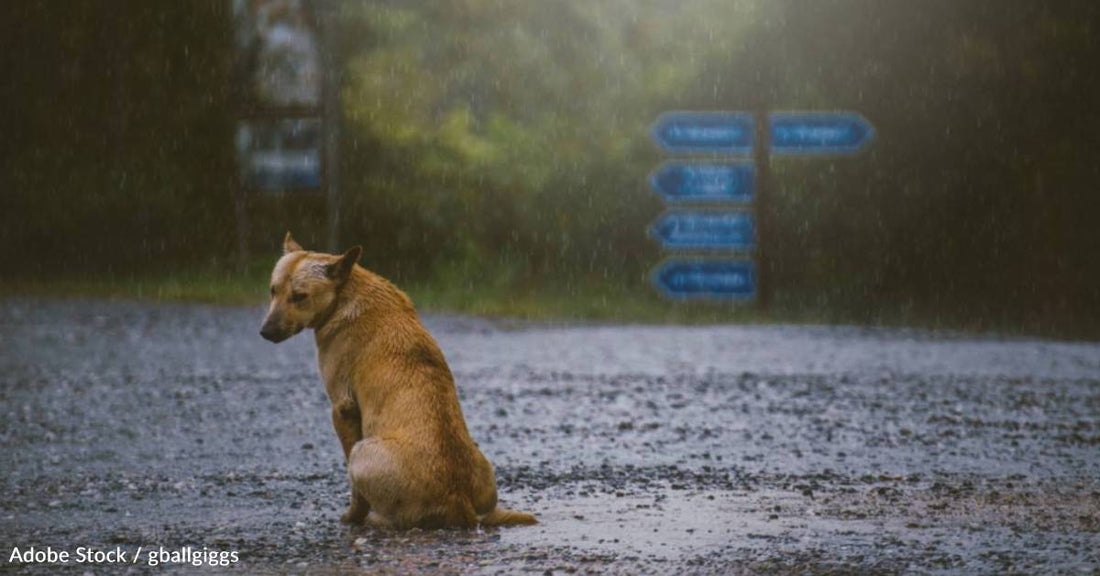When Natural Disasters Strike: Preparedness Tips for Pet Owners
Michelle Milliken
As summer arrives, so do hurricane season and wildfire season. It's important to take steps to protect yourself when one of these natural disasters approaches. That includes making a plan, paying attention to alerts, finding shelter if you need to evacuate, and ensuring you have the essentials before an evacuation. The to-do list can get more complicated if you have pets to consider. There are a few preparedness steps you can take to ensure your furry friends are also safe in the event of a natural disaster.
Make a Plan for Your Pet
If you live in an area prone to the threat of hurricanes or wildfires, being proactive is always a good idea. Emergency officials recommend that you either speak with a friend or neighbor who could care for your pet if you will be unable to do so, choose a safe room where you and your pets can ride out a storm if you don't need to evacuate, or already have an idea of where you and your pet can evacuate. It's also important to get a sturdy carrier, microchip your pet in case you find yourselves separated, and ensure their tag has up-do-date information. For an added layer of protection, you can add another contact number to the tag if the person who finds your pet can't contact you.
Make Sure Your Disaster Kit Includes Pet Supplies
Whether you're riding out a storm at home or you'll be evacuating, disaster kits are an essential. For humans, you need to make sure you have food, water, medications, first aid supplies, batteries, flashlights, a backup cell phone battery with chargers, and similar items. With a pet, you'll need to tack on some additional necessities.
Your water supply will need to be large enough meet your pet's needs, and your kit should include a week or two's worth of their food, any of their medications, a backup leash and collar, items like a box and litter or newspapers and trash bags for when your pet needs to answer nature's call, and some familiar items to take the ease off of the stressful situation. You'll also need to store important pet documents like vaccination records and adoption papers, as well as a picture of the two of you together, in a watertight container. Those should be available electronically, as well. Be sure you have their rabies tag, too.
If Remaining at Home, Keep Your Pet's Needs in Mind
If evacuation isn't necessary but the weather will still be dicey, you'll need to set up the safest space you can for the whole family, four-legged members included. Ensure all of your pets are indoors when severe weather is on its way. You'll need to choose a secure room that's most protected from any potential fallout from strong winds associated with hurricanes. An interior room on the ground floor without windows is your best bet. It's a good idea to acclimate your pets to this room before any such weather even arrives.
Once you're situated in this room, make sure you bring your own supplies, as well as those of your pets. Keep their carriers on hand. Make sure your cats have their litter boxes and that dogs have an area where they can relieve themselves. Some pet parents fill a kiddie pool with sod for their pups, as taking them outside during a storm is very dangerous. Be sure to have some of your pet's favorite comforting items, as well, and be ready to provide some enrichment if you're cooped up for a while. It is also important to be prepared to evacuate, in case forecasts change as the storm makes its final approach.
If You Need to Evacuate, Take Your Pet with You
Though we're all sure we'd take our pets with us in the event of a serious natural disaster, that doesn't always happen. A survey from the ASPCA found that nearly half of pet owners who had to evacuate due to an emergency or disaster left at least one pet at home. The survey also found that only 46% of pet owners had an emergency plan, which could impact their ability to take their pets.
Unfortunately, when people are unable to take their pets with them, that could leave their furry friends alone for days if not weeks. It can often take time to get back home after such an event, especially if a community is hit particularly hard. Even if your pet managed to survive any weather hazards, that means they could be without food or water for a long period of time.
Ensure Your Shelter is Pet Friendly
When you're planning a place to stay after evacuation, it's important to ensure that your pets can come, too. Some shelters do not allow pets and many hotels may not, either. A little research ahead of time, maybe even before a storm develops, is a good idea. Ensure your furry friend is up-to-date on their shots, too, as some shelters may accept pets, but only if their vaccinations are current.
If you find it more difficult to obtain this sort of accommodation, you can ask a friend who doesn't mind if you stop by with a few extra animals.
Helping Animals Affected by Natural Disasters
After a disaster, pets with forever homes can struggle, but shelter pets can, too. Tornadoes, hurricanes, wildfires, and flooding can all cause significant damage to rescue operations. If you'd like to help shelters that may experience this, consider a donation to Rescue Rebuild.





